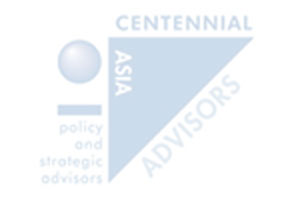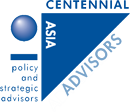Asian Insights
A summary of “Asian Insights” weekly update is published here. The full version is available through paid subscription. Please click here to register your interest. Our executive will get in touch with you.

Highlights from the CAA Weekly Table:
Asian political risks:
- Foreign direct investment and funding of start-ups in Southeast Asia surged in 2021. We see good reasons for such funds flows into the region to accelerate.
- PMI data show China’s slowdown deepening. While policy makers are showing more urgency to provide support for the economy, these efforts are localised and highly selective. Moreover, the continued push for regulatory crackdowns will unnerve private sector investors and potentially negate other policy efforts.
- South Korea’s run of vibrant growth should continue but with consumption and services playing a bigger role. While Taiwan’s 2021 performance was extraordinary, it masked structural weaknesses such as a declining population and lacklustre foreign investment. Indonesia’s industrial policies seem to be producing good results. The Philippines economy ended 2021 with a bang but weak fixed investment is a worry.
Oil prices to remain range-bound but supply is the wild card
- Global demand for oil is set to converge onto pre-pandemic levels in 2022. Whereas crude
imports into China will merely make up for lost ground this year, other sources of support include strong demand in India as well as a partial revival in jet fuel demand once regional travel in East Asia resumes in the coming months. - Supply is the wildcard here. Smaller members of the OPEC cartel have struggled to meet their production targets, while US shale is constrained by drillers mindful of shareholder concerns over capital discipline.
- The market is clearly tightening but concerns of a paucity of spare capacity are overdone. Back-of-the-envelope calculations suggest Saudi Arabia and the UAE are armed with at least 1 million bpd in spare capacity apiece. Then there is Iranian crude which might come back online if negotiations over its nuclear programme can be concluded. Thus, we project Brent oil prices in the USD80-USD90 range this year, with a correction possible once the standoff in Ukraine eases.
- For the region, higher oil prices entail slower growth as real incomes weaken; greater price pressures at a time when negative output gaps are closing; and widening imbalances (or narrowing surpluses) thanks to a ballooning import bill.
Singapore: Broader macro shifts compel fundamental policy changes
- Inflation risks have risen as the stronger than expected economic rebound is closing the output gap quickly and thus price pressures are becoming more broad-based.
- Second, Singapore’s manufactured exports will prosper as semiconductor demand continues to strengthen, even off a high base.
- Third, the recovery in regional demand will spur a rebound in the cluster of services that cater to the region including finance and trade
- The central bank’s surprise move to tighten monetary policy further last week, outside its
normal April or October policy meetings, is likely to be followed by more tightening, in both monetary policy in October this year as well as in macro-prudential measures as well. - We also expect non-monetary moves to cool inflation. A more aggressive easing of border
restrictions to allow migrant workers in would improve labour supply and cool wage growth.

Highlights from the CAA Weekly Table:
Asian political risks:
- Even if the US falters in a Ukraine crisis, China will not be emboldened to attack Taiwan as
some fear. China will move only when sure of victory, which is decidedly not the case now. But China is likely to ramp up military, economic and diplomatic pressure on Taiwan. - In the Philippines, Marcos Jr has fended off court challenges to his candidacy for the presidency. He will have to up his act if he is to maintain his current lead in the polls.
Asian economic prospects:
- Supply chain woes are evident in Asia as infections rise but they are likely to remain limited.
- China’s monetary easing is pushing on a string given weak credit demand. Fiscal policy
needs to be stepped up. - Incoming inflation data and central banks statements point to monetary policy in Indonesia,
Malaysia and Singapore being further tightened.
A new capital spending cycle is set to boost Asian exports
- The hard data on capital goods orders is beginning to support this view. Announcements by
companies on capital spending plans also provide support. - Within Asia, Singapore, Taiwan, South Korea, and Malaysia are particularly likely to benefit
from the capital spending upturn.
Malaysia: political realignments raise uncertainty over electoral outcomes
- Malaysia is entering a period of greater political tumult. New parties are forming and new
alliances taking shape. A big loser from this appears to be the Pakatan Harapan coalition led by Opposition Leader Anwar Ibrahim. - Adding to the uncertainty is the lowering of the voting age to 18: together with natural
growth in the population, this means a 40% rise in the number of voters. - The current government’s image has taken a beating because of poor management of the
terrible floods in December. Allegations of corruption against the head of the anti-corruption agency have also increased voter dissatisfaction. - In the coming months, incumbent political parties will hold their annual meetings, offering
a chance for leadership renewal which might revive their fortunes. Elections for the state assembly in Johor will also provide some clarity on where things could stand. - We believe that the most likely scenario is that the once-dominant UMNO party is likely to
return to power at the head of an unwieldy alliance once a general election is called, probably in July.
